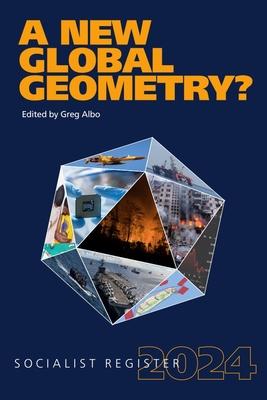Scrutinizes possibilities for an equalised global order, in light of recent conflicts between the world's major powers
The "post-Cold War era is definitively over," asserted US President Joe Biden as he launched the new National Security Strategy, warning in late 2022 that "a competition is underway between the major powers to shape what comes next." American leadership, the document declared, would be more necessary than ever to define "the future of the international order," insisting that the US must marshal its unparalleled economic, military, and diplomatic resources to confront its geopolitical rivals. Socialist Register 2024: A New Global Geometry? takes stock of momentous changes on the horizon: Even if these geopolitical shifts do not spell the end of globalization, how might they alter its historical trajectory? While it is it premature to speak of the end of the liberal economic order, let alone the development of a multipolar international system, can we begin to assess the dimensions of a new global geometry? And, how might we assess the potential vulnerabilities of socialist movements worldwide, alongside the potential resistance our movements might manage to present, grounded in our historical demands for a democratic and equalizing world order?

A New Global Geometry?: Socialist Register 2024
Scrutinizes possibilities for an equalised global order, in light of recent conflicts between the world's major powers
The "post-Cold War era is definitively over," asserted US President Joe Biden as he launched the new National Security Strategy, warning in late 2022 that "a competition is underway between the major powers to shape what comes next." American leadership, the document declared, would be more necessary than ever to define "the future of the international order," insisting that the US must marshal its unparalleled economic, military, and diplomatic resources to confront its geopolitical rivals. Socialist Register 2024: A New Global Geometry? takes stock of momentous changes on the horizon: Even if these geopolitical shifts do not spell the end of globalization, how might they alter its historical trajectory? While it is it premature to speak of the end of the liberal economic order, let alone the development of a multipolar international system, can we begin to assess the dimensions of a new global geometry? And, how might we assess the potential vulnerabilities of socialist movements worldwide, alongside the potential resistance our movements might manage to present, grounded in our historical demands for a democratic and equalizing world order?